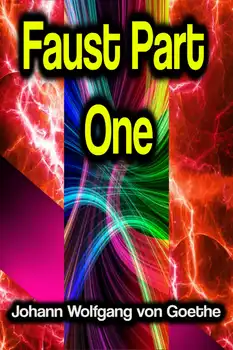Faust Part One - Johann Wolfgang von Goethe - The story of Dr. Faustus and the Devil is one of such deep human significance, and, from the Reformation downwards, of such large European reputation, that in giving some account of its origin, character, treatment, legendary and poetical, I shall seem to be only gratifying a very natural curiosity on the part of the intelligent reader. We, who live in the nineteenth century, in a period of the worlds intellectual development, which may be called the age of spiritual doubt and scepticism, in contradistinction to the age of faith and reverence in things traditional, which was first shaken to its centre by the violent shock of the Reformation, can have little sympathy with the opinions as to spiritual beings, demoniacal agency, magic, and theosophy, that were so universally prevalent in the sixteenth century. We believe in the existence of angels and spirits, because the Scriptures make mention of such spiritual beings; but this belief occupies a place as little prominent in our theology, as its influence is almost null in regard to actual life. In the sixteenth century, however, Demonology and Angelography were sciences of no common importance; and were, too, a fruitful root whence the occult lore of the sages, and the witch, ghost, and magic craft of the many took their rise, and spread themselves out into a tree, whose branches covered the whole earth with their shadow. From the earliest Christian fathers, to the last lingering theosophists of the seventeenth century, we can trace a regular and unshaken system of belief in the existence of infinite demons and angels in immediate connection with this lower world, with whom it was not only possible, but of very frequent occurrence, for men to have familiar intercourse. Psellus,[i1] the prince of philosophers, does not disdain to enter into a detailed account of the nature and influence of demons, and seems to give full faith to the very rankest old wives fables of dæmones incubi et succubi, afterwards so well known in the trials for witchcraft which disgraced the history of criminal law not more than two centuries ago. Giordano Bruno, the poet, the philosopher, and free-thinker of his day, to whom the traditionary doctrines of the Church were as chaff before the wind, was by no means free from the belief in magic, the fixed idea of the age in which he lived. O! quanta virtus, says he, in all the ebullition of his vivid fancy, O quanta virtus est intersectionibus circulorum et quam sensibus hominum occulta!!! cum caput draconis in sagittario exstiterit, diacedio lapide posito in aqua, naturaliter (!) spiritus ad dandum responsa veniunt.[i2] The comprehensive mind of Cornelius Agrippa, the companion of kings and of princes, soon sprung beyond the Cabbalistical and Platonical traditions of his youth; but not less is his famous book De Philosophia Occulta a good specimen of the intellectual character of the age in which he lived. The noted work De Vanitate Scientiarum is a child of Agrippa, not of the sixteenth century. The names of Cardan, Campanella, Reuchlin, Tritheim, Pomponatius, Dardi, Mirandula, and many others, might be added as characteristic children of the same spirit-stirring era; all more or less uniting a strange belief.
Faust: Part One
Kokeile 30 tuntia ilmaiseksi
- Lue ja kuuntele tänään
- Ei sitoumusta, voit perua milloin vain

Tee jokaisesta hetkestä seikkailu
- Kuljeta satojatuhansia tarinoita taskussasi
- Ei sitoumusta, voit perua milloin vain

Aloita tämä kirja jo tänään, hintaan 0€
- Kokeilujakson aikana käytössäsi on kaikki sovelluksen kirjat
- Ei sitoumusta, voit perua milloin vain
Kirjailija:
Kieli:
englanti
Muoto:

The Sorrows of Young Werther :
Johann Wolfgang von Goethe
audiobookbook
10 Masterpieces You Have to Read Before You Die, Vol.5 : The Odyssey, The Republic, Meditations, The Divine Comedy, Faust and others
Homer, Plato, Aristotle, Marcus Aurelius, Niccolo Machiavelli, Dante Alighieri, Johann Wolfgang von Goethe, Leo Tolstoy
audiobookbook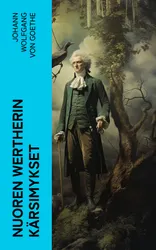
Nuoren Wertherin kärsimykset
Johann Wolfgang von Goethe
book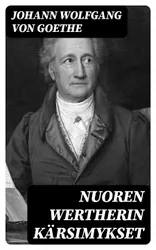
Nuoren Wertherin kärsimykset
Johann Wolfgang von Goethe
book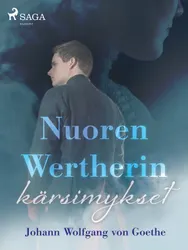
Nuoren Wertherin kärsimykset
Johann Wolfgang von Goethe
book
Harvard Classics Volume 39 : Prefaces And Prologues
William Caxton, Golden Deer Classics, John Calvin, Nicolaus Copernicus, John Knox, Edmund Spenser, Walter Raleigh, Francis Bacon, Henrie Condell, Iohn Heminge, Isaac Newton, John Dryden, Henry Fielding, Samuel Johnson, Johann Wolfgang von Goethe, William Wordsworth, Victor Hugo, Walt Whitman, Hippolyte Adolphe Taine
book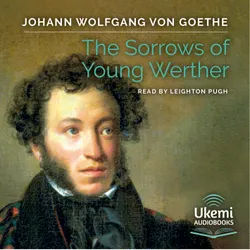
The Sorrows of Young Werther
Johann Wolfgang von Goethe
audiobookbook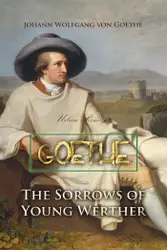
The Sorrows of Young Werther
Johann Wolfgang von Goethe
book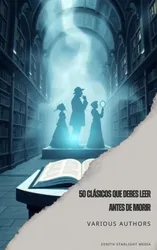
50 Clásicos que debes leer antes de morir
Dante Alighieri, Aristóteles, Jane Austen, Charles Baudelaire, Giovanni Boccaccio, Anne Brontë, C. Collodi, James Fenimore Cooper, Fedor Mikhaïlovitch Dostoïevski, Arthur Conan Doyle, Alexandre Dumas, José de Espronceda, Gustave Flaubert, Sigmund Freud, Benito Pérez Galdós, Kahlil Gibran, Johann Wolfgang Goethe, Johann Wolfgang von Goethe, Victor Hugo, Thomas Hardy, Nathaniel Hawthorne, Vicente Blasco Ibáñez, Washington Irving, James Joyce, Mariano José de Larra, Jack London, Federico García Lorca, H.P. Lovecraft, Antonio Machado, Gustav Meyrink, John Stuart Mill, Amado Nervo, Friedrich Nietzsche, Solomon Northup, Alexander Sergeyevich Pushkin, Francisco de Quevedo, Walter Scott, William Shakespeare, Robert Louis Stevenson, Harriet Beecher Stowe, Jonathan Swift, Mark Twain, Miguel De Unamuno, Ramón María del Valle-Inclán, Julio Verne, Virginia Woolf
book
The Wanderer's Song: Essential Poems
Johann Wolfgang von Goethe
book
Faust
Johann Wolfgang von Goethe
book
Faust-The Tragedy
Johann Wolfgang von Goethe
book
